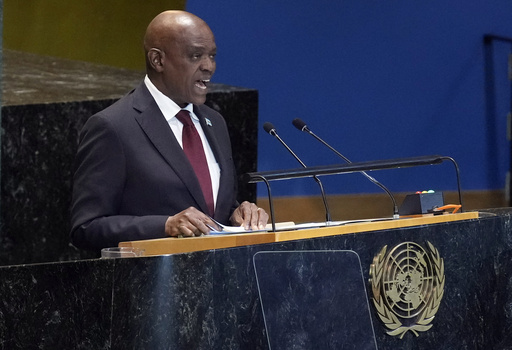
GABORONE, Botswana — This week, Botswana is set to conduct a crucial national election that will determine whether the Botswana Democratic Party (BDP), in power for an impressive 58 years, maintains its hold on the government in this southern African nation, renowned for its diamond production and often considered one of the continent’s most stable and least corrupt democracies.
Current President Mokgweetsi Masisi is pursuing a second and final term, although the election on Wednesday will not directly elect a president. Instead, the electorate will determine the composition of Parliament, which will subsequently select the president.
The ruling BDP has been the dominant force in Botswana’s political landscape since the country gained independence from British rule in 1966. However, this election arrives during a period of economic uncertainty for Botswana, which heavily depends on diamond mining. As the second-largest diamond producer globally, trailing only Russia, Botswana has consistently been a source of significant raw gems over the past decade. Still, the country is facing a drop in diamond revenue due to a slackening demand.
Authorities disclosed that sales of rough diamonds from Debswana—the state-owned enterprise that operates in tandem with De Beers—plummeted by nearly 50% in the first half of 2024. This decline has strained the national finances and sparked criticism aimed at President Masisi and the BDP for their failure to implement effective economic diversification strategies.
Unemployment rates have soared in Botswana, exceeding 27%, with youth unemployment surpassing 45%. Employees in the public sector have faced delayed salary payments amid the country’s fiscal constraints, tarnishing Botswana’s reputation for efficient governance and raising concerns that austerity measures may become necessary.
Rev. Prince Dibeela, an opposition leader, noted, “For the first time in more than four decades, our state finances are in the negative.” He highlighted the plight of over 200,000 young individuals who are capable of working but remain jobless. “Our society is quite fragmented,” he added.
In response, the BDP has committed to diversifying the nation’s modest economy, which boasts a GDP of $21 billion. Presently, diamond mining and sales account for a staggering 80% of Botswana’s exports, one-third of its fiscal revenue, and approximately 25% of its GDP, as reported by the International Monetary Fund, which has emphasized the urgent need for diversification.
Lebogang Kwape, currently serving as the foreign minister and Deputy Secretary-General of the BDP, remarked, “We are prepared to serve the citizens of Botswana with promises that align closely with their aspirations.” He asserted that the BDP has actively listened to the needs of the Batswana and has developed a manifesto that authentically addresses their concerns with a practical approach.
Kwape stated that the BDP aims to prioritize processing mineral resources as a means to generate new revenue while simultaneously nurturing the agriculture and tourism sectors.
Approximately one million people are registered to vote, as reported by the Independent Electoral Commission, with the rising unemployment rate being a significant concern for constituents. Botswana, which is larger than France yet has a modest population of about 2.5 million, faces challenges such as drought and desertification that threaten both its development and the livelihood of its citizens.
Three candidates are stepping up to challenge President Masisi: Duma Boko from the primary opposition party, the Umbrella for Democratic Change, Dumelang Saleshando from the Botswana Congress Party, and Mephato Reatile from the Botswana Patriotic Front.
The upcoming election is also poised to rekindle the ongoing rivalry between Masisi and former President Ian Khama, whose tenure Masisi succeeded but with whom he later fell out. Khama, son of Botswana’s founding president, left the BDP in 2021 and sought refuge in South Africa, claiming that Masisi had adopted an authoritarian stance toward dissent. He faced charges related to illegal firearm possession and receiving stolen property, allegations he views as politically motivated attempts at repression.
Khama made his return to Botswana in September for a court proceeding and has since been campaigning for the Botswana Patriotic Front to seek Masisi’s ousting.
President Masisi, 63, previously worked as a high school teacher and was employed by the United Nations Children’s Fund before taking office. He is only the fifth president of Botswana since its independence.
